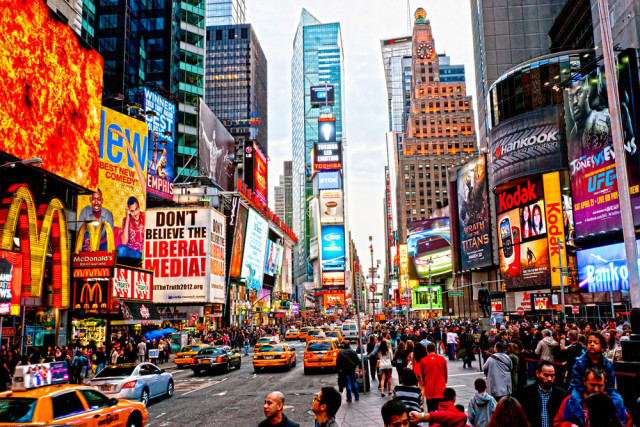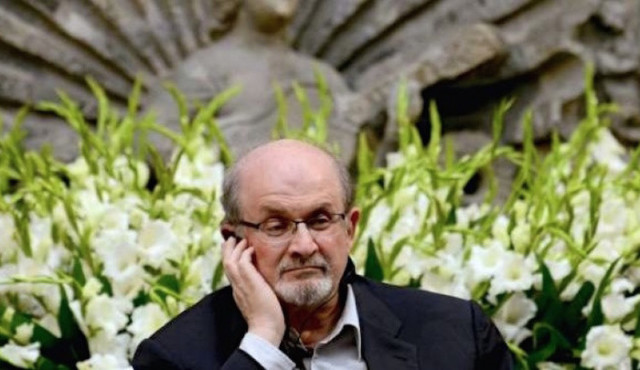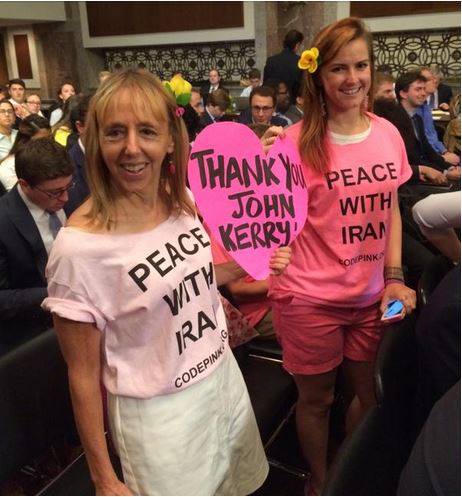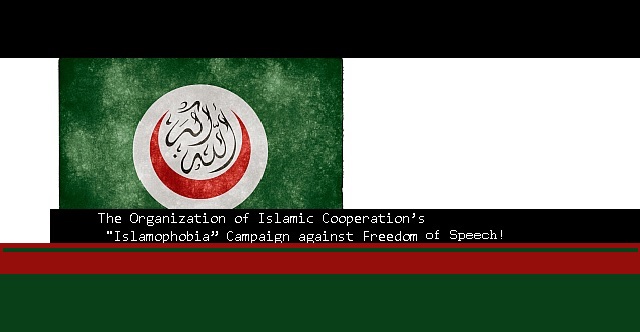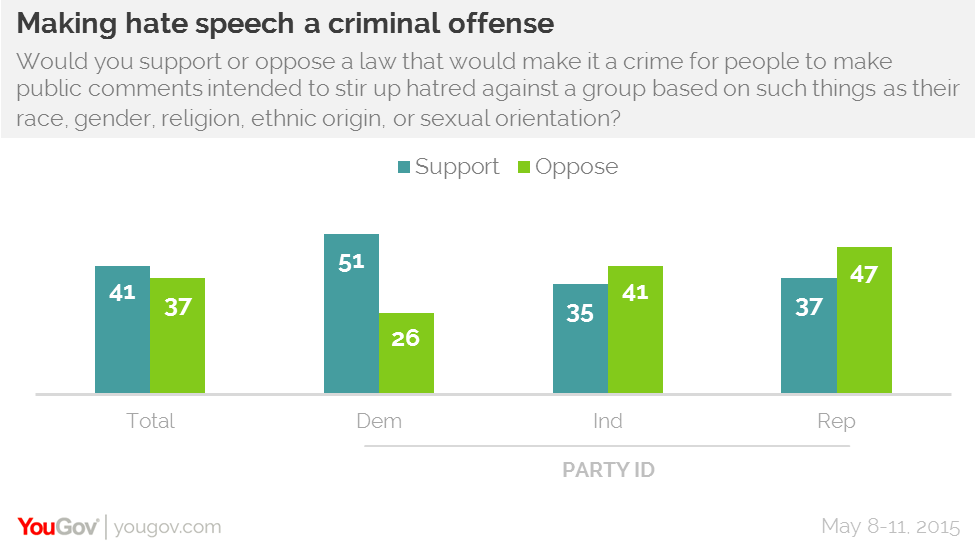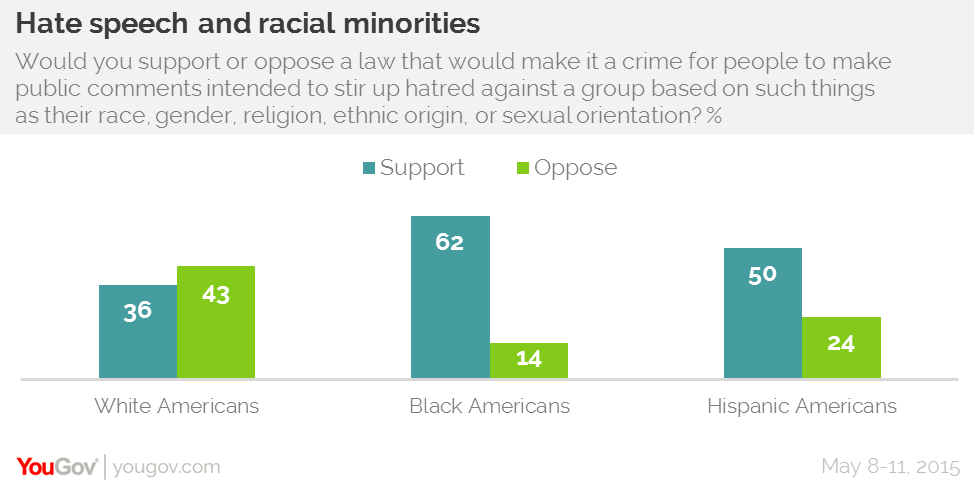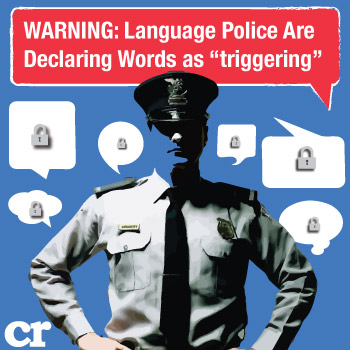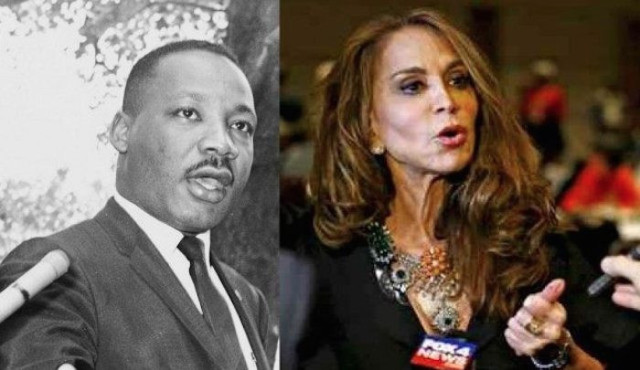Where Things Stand by Hugh Fitzgerald
More than 14 years have passed since Americans have had their attention forcefully fixed on the reality of Islamic terrorism. Until September 11, 2001, with the attacks on the World Trade Center and the Pentagon, most people in America — and in Europe — could be forgiven for assuming that they would not become the targets of Arab – and Muslim – terror attacks. That was something for Israelis to worry about. And if they had not been guilty of what the Arabs saw as “occupation of Arab lands” (for decades the mantra justifying terrorist attacks on Israel), why should they be targeted?
That comforting assumption evanesced in the face of more attacks by Muslims on targets all over Europe: in Amsterdam, Theo van Gogh was killed for the crime of making Submission, a movie about Muslim women. In 2004 in Madrid, at Atocha Station, in the same year, Muslim bombs claimed Spanish victims, though Spain’s government had taken a largely pro-Arab line; in London, in 2005, innocents on both busses and the Underground were the victims of Muslim attacks, apparently because British troops were in Iraq and Afghanistan. In France, there have been murderous attacks on French Jews, not Israelis, including the attack on the Hyper Cacher, a kosher market. And there have been attacks on cartoonists, of various nationalities, who dared to mock Muhammad – the Charlie Hebdo staff in Paris was massacred, and in Denmark attempts – fortunately unsuccessful — were made on the life of Lars Vilks. In both cases the putative crime was “blasphemy.”
Not everyone was prepared to surrender: in the United States, Pamela Geller helped to organize a Draw-Muhammad contest in Texas, and for her pains now finds it necessary to be accompanied at all times by security guards. Indeed, one could fill up pages merely listing Muslim attacks either planned or carried out within Europe and North America; still other pages would be needed to list all the Muslim attacks on non-Muslim targets in such varied places as Mumbai, Beijing, and Bali. Clearly something larger than that Arab anger over Israeli “occupation” explains these worldwide attacks.
As more and more people in the West are beginning to realize, the “root cause” of all this violence by Muslims against non-Muslims is to be sought not in a local grievance, but in the ideology of Islam itself. The personal testimony of ex-Muslims such as Ibn Warraq and Ayaan Hirsi Ali and Ali Sina and Wafa Sultan, the analyses provided by Western students of Islam such as Robert Spencer and Bat Ye’or, have had their slow and steady effect. This small army of truth-tellers dissects the contents of the Qur’an and Sunnah (which consists, in written form, of both the Hadith and Sira), and for this have been described as “bigots,” but it becomes harder and harder to ignore or refute their evidence.
Among the learned analysts determined not to listen either to the apostates or to such people as Spencer, one comes immediately to mind. John Esposito, who created the Center for Muslim-Christian Understanding, associated with Georgetown, can be counted on to ignore the contents of Islam and to serve as an apologist. Alwaleed bin Talal, a Saudi prince, is now that Center’s main funder, and the Center itself was renamed the Alwaleed bin Talal Center for Muslim-Christian Understanding. Esposito has a long record of managing to find ways to ignore or dismiss the textual evidence that Spencer, Ibn Warraq, and others adduce from Qur’an and Hadith.
But money alone does not explain why so many people in the West have been so ready to ignore the evidence of Muslim malevolence, of widespread support for violent Jihad. Many In the West simply don’t want to see what is staring them in the face. For if Islam really does inculcate permanent hostility toward Infidels, what, then, is to be done about the tens of millions of Muslims already ensconced in Western lands? Could it really be that, as suggested by some, the adherents of Islam see the world as uncompromisingly divided between Dar al-Islam, the lands where Islam dominates and Muslims rule, and Dar al-Harb, the Domain of War, that part of the world which has not yet come under the sway of Islam and rule by Muslims? Could it really be that it is incumbent upon Muslims to wage Jihad, that is, the “struggle” to ensure that the whole world ultimately comes under the sway of Islam, so that Muslims rule everywhere? Even if that goal sounds fantastic to Infidels, there are enough Muslims, it seems, among the more than 1.2 billion in the world, who apparently do not agree, and are willing to keep trying. And the more their numbers increase inside Dar al-Harb, the greater the threat they pose.
Could it really be, after all, that Israel was only one target of Muslim aggression among many, in a much larger war, first to regain all the territories once in Muslim possession (Israel, Spain, the Balkans, Sicily) and then, after those re-conquests, to fulfill the duty to work to spread Islam until it everywhere dominated? And why did this explosion of violence begin not 50 or 100 years ago, but just in the last two decades?
A Saudi cleric, Dr. Nasser bin Suleiman Al-‘Omar, noted on Al-Jazeera TV on April 19, 2006:
The Islamic nation now faces a great phase of Jihad, unlike anything we knew fifty years ago. Fifty years ago, Jihad was attributed only to a few individuals in Palestine, and in some other Muslim areas.
How do things stand now, in 2015? The doctrine of Jihad wasn’t suddenly invented in the past fifty years. It’s been the same, more or less, for 1350 years. It had fallen into desuetude when Muslims felt themselves to be weak, but did not, and could not, disappear. What happened to make things so very different in recent decades? Some might point to the end of “colonialism.” They might note, for example, that the French, after forty years in Morocco and Tunisia, had withdrawn from both by the mid-1950s, and from Algeria in 1962. They might note that the British garrisons in Aden and elsewhere along the Persian Gulf had been withdrawn, largely for financial reasons, and that Saudi Arabia itself had never been subject to colonial rule. They might note the withdrawal of the British from India, and the creation of an Islam-centered state, in what was then West Pakistan (now Pakistan) and East Pakistan (now Bangladesh). The Dutch abandoned their rule over Muslims in the East Indies (what is now Indonesia). But the end of colonial rule over Muslim peoples, more than a half-century ago, is not enough to explain the current violence and threats by Muslims worldwide.
Three developments explain the explosion of Islamic aggression in the last two decades, developments which permitted the Jihad to widen in scope and no longer be merely a small-scale Lesser Jihad against Israel:
1) First, there is the money weapon provided by the OPEC oil bonanza. Inshallah-fatalism and hatred of innovation (bida)—both tend to hinder economic development in Arab and Muslim countries. You are likely to put in less effort if, in the end, Allah decides the outcome. And Muslim distrust of innovation dampens the desire of individuals to jettison age-old methods and to introduce new ways of manufacturing and distribution. Muslim Arabs have acquired fantastic sums, nonetheless, because such acquisition required no effort on their part – it merely reflects an accident of geology. Since 1973, Arab and other Muslim-dominated oil states have received close to 25 trillion dollars from the sale of oil and gas to oil-consuming nations. This constitutes the greatest transfer of wealth in human history. The Muslim recipients did nothing to deserve this. Many interpreted the oil bonanza as a deliberate sign of Allah’s beneficence, inshallah-fatalism in their favor. That money did not just save them from poverty, but made many of them fabulously wealthy. And the higher prices that the OPEC cartel for a while managed to exact could even be interpreted as a kind of Jizyah, exacted from the Infidels.
What have the Arabs done with that twenty-five trillion dollars in OPEC money that they received over the past one-third century? They did not create paradises of artistic and scientific creation. Their peoples continue to rely on armies of wage-slaves to do the real work; in Qatar, for example, one-tenth of the population, the native Qataris, are serviced by foreign workers, Arab and non-Arab, who make up the remaining nine-tenths. Arab oil states have bought hundreds of billions of dollars’ worth of Western arms. And this has created a network of middlemen, bribes-givers and bribes-takers, and Western hirelings involved not only in arms sales, but also in the business of supplying other goods and services to these suddenly rich oil states. And these people not unnaturally find ways to explain away or divert attention from the less pleasant aspects of the countries with which they are involved. Saudi Arabia, for example, has long enjoyed the support of powerful Western business interests for whom Saudi Arabia is a major client; these interests have a stake in continued good relations and are not about to let unpleasant truths (such as the hatred of Infidels found in Saudi schoolbooks) get too much attention. Thus has the oil money become the fabled “wealth” weapon of the Jihad, by which boycotts, and bribery, and the dangling of profitable contracts, contributed to creating a vast and loyal constituency among some influential and meretricious people in the capitals of the West.
How else have the Arabs spent that oil money? As mentioned above, on wage-slaves, those foreigners who, in Saudi or Qatar or the Emirates, arrive to do all the work. On palaces for the corrupt ruling families and their corrupt courtiers. On foreign real estate at the highest end, and luxury goods. It’s not only the ruling families who help themselves to the oil wealth – there’s so much to go around. Play your cards right and you could share that wealth, even if you are not a prince, princeling, or princelette of the Al-Saud family, but merely a lowly commoner. The original Bin Laden, founder of the clan, arrived in Saudi from Yemen, became a successful contractor, even won contracts for building in Mecca, and become fabulously rich. Courtiers such as the commoner Adnan Khashoggi began as a middleman in arms deals and made a fortune. Many started out as such fixers and middlemen in the Arab Gulf states and Saudi Arabia, and then metamorphosed into legitimate businessmen.
This creates a class of people who profit from, and support the regime. In the same way, the rich Arabs have created a lobby of Westerners, who divert attention from Islam’s tenets and teachings. The highly profitable contracts that have been given to Western businessmen for the construction of office parks, hospitals, apartment complexes, military cities have created a natural lobby in the West for Arabs and Muslims, consisting not only of those who receive such contracts, but also of others, including Western public relations experts, former government officials, journalists, academics, whose services are made available to the rich Arabs in presenting their case. Such institutions as the Center for Contemporary Arab Studies, or, again, John Esposito’s Alwaleed bin Talal Center for Muslim-Christian Understanding, both in Washington and in England, such as the Arab Studies programs at Durham and Exeter and many departments of Islamic studies or Middle Eastern history, have been staffed by apologists for Islam. Columbia University offers a particularly egregious example.
Another product of the “wealth” Jihad are the thousands of mosques that Arab oil money pays for, in London and Rome and Paris, as in Niger and Pakistan and Indonesia. Much of that money comes from Saudi Arabia, whose clerics make sure that the mosques that are built, or that receive Saudi support, preach the stern Wahhabi version of Islam. It is the same for madrasas that receive Saudi subventions. And campaigns of Da’wa (the Call to Islam, particularly effective in Western prisons), too, often receive OPEC money.
2) The second development, observable at the same time as the oil money really began to flow into the countries of Western Europe, was demographic: millions of Muslim migrants have over the past four decades been allowed to enter Western Europe. These were mainly Pakistanis in England, Turks in Germany, Algerians in France, Moroccans in Spain, Indonesians in Holland, and in every country, assorted mix-‘n-match Muslims from all of these and still other places. They brought their wives; their families always became much larger than those of the non-Muslim natives. These Muslims could now enjoy Western medicine (lower rates of infant mortality), Western education, Western housing — free or greatly subsidized.
What Muslims brought undeclared in their mental baggage to the West –Islam itself — was not held up for close examination. And it was taken as an article of faith that nothing seriously prevented Muslims from integrating with the same ease as non-Muslim immigrants. Those who expressed doubts about this, who suggested that there might be special problems with Muslim immigrants — and these skeptics included both some who had been raised as Muslims (Ayaan Hirsi Ali, Ibn Warraq) and non-Muslims (Bat Ye’or, Hans Jansen, Robert Spencer) who had studied Islam — were at first dismissed as bigots. But they could not be silenced. These informed commentators insisted that the belief-system of Islam, the system that suffuses the minds of Muslims wherever they are, has taught them to be hostile to Infidels, and should not be ignored. But many non-Muslims, at a loss as to what they might do with this knowledge, have willfully ignored Islamic doctrine. The notions that first, a Muslim’s true loyalty is to fellow members of theumma al-islamiyya, and second, that Jihad to spread Islam (so that ultimately Islam will everywhere dominate) is a duty incumbent on all Muslims, have not been taken seriously by those whose duty it is to protect and instruct us.
In recent years, an older generation of Western scholars of Islam and the Middle East has died or retired (one thinks of Bernard Lewis, A.K.S. Lambton, J. B. Kelly, Elie Kedourie, P. J. Vatikiotis); these people were critical both of Islam and of its apologists in the West. They have been replaced, in academic departments, by those who are often Muslims themselves or, if not Muslim, less critical, and more admiring of both. Their background and training were received from Arabists, and they were inclined to be apologists for Islam. Ibn Warraq once said that in his experience, many of those who choose to enter the fields of Islam and Middle Eastern history possess a pre-existing animus toward Jews, or toward the West itself, and are predisposed to find Islam attractive. He calls this “self-selection.” And then there is still sympathy for peoples from the “Third World” — never mind that Qataris, Kuwaitis, Saudis, Emiratis hardly qualify, given their fabulous unearned wealth.
The flow of Muslims into Europe has consisted mainly of Pakistanis to Great Britain, Moroccans and Turks to the Netherlands, Algerians and other maghrebins to France, Turks to Germany, Egyptians and Libyans to Italy. In 2015, they are now joined by Syrians (or “Syrians,” since many so identified in fact come from elsewhere), who are being admitted in huge numbers. They will swell Muslim millions already in the West. More than 800,000 of these “Syrians” are set to be received by Germany alone this year, thanks to Angela Merkel.
Demography is destiny. The greater the number of Muslims in Europe, the greater their political power becomes. Muslims have been attempting, unsurprisingly, to limit the ability of non-Muslims in Europe to enforce laws, or to enjoy freedoms, or to fashion foreign policies, to which Muslims might object. Think of the difficulties the French government still experiences in enforcing the no-hijab rule in state schools; think of the cartoonists in France and Denmark and elsewhere in Europe who now hold back on caricatures of Muhammad, fearful of meeting the same fate as theCharlie Hebdo staff. Jews in France are worried about their future; the spate of attacks by Muslims on Jews in France suggest they are right to worry. There has been a great increase in the numbers of French Jews going to Israel.
Meanwhile, Muslims continue to push for changes in the laic state. They still have not given up, for example, attempts to challenge the ban on the hijab in schools. And when cartoonists are killed for having “blasphemed” Muhammad, too many Muslims express not abhorrence but approval. Muslims recognize and are prepared to exploit the freedoms, political and civil, created by and for the Infidels, and are ready to exploit them to further their own, Muslim, ends.
For Western man, the legitimacy of any government depends on that government reflecting, however imperfectly, the will expressed by the people through elections. Islamic political theory is based on a very different idea: the legitimacy of government depends on the ruler being a Muslim, and the will to be expressed is that of Allah, as set down in written form in the Qur’an, and an additional fleshing-out of the Qur’an’s meaning comes through study of the Sunnah, that is, the practices of the earliest Muslims, derived from the Hadith and Sira, which become a kind of gloss on the Qur’an.
Western man exalts the individual; in Islam, it is the collective, the community of Believers. And the true object of worship in Islam turns out to be Islam itself; it is Islam itself that Believers must protect from attack. Morality in Islam is determined by what Muhammad said or did; he remains the Model of Conduct, the Perfect Man, and for all time. Those who assume that the millions of Muslims who have been allowed into Europe and North America are going to “integrate” into non-Muslim societies, societies with manmade laws quite different from the Sharia, without difficulty, fail to recognize that this would mean jettisoning much of Islam. It could require seeing Muhammad in a critical light, and doing away with Muslim supremacism. Is this conceivable? And it should not be forgotten that Muslims have a duty to conduct Da’wa, the Call to Islam, to promote Islam as the Truth.
3) The OPEC trillions from oil, and the Muslim migrant millions in the West, are two of the three significant developments that explain Muslim power today. The third development consists of the appropriation and effective use, by Muslims, of technological advances originating in the Western world, and therefore made by Infidels, that made it much easier to disseminate the Call to Islam to Infidels, and the full message of Islam to Believers worldwide, to spread the message of the most austere and implacable kind of Islam — Wahhabism — and even to recruit for Al Qaeda and ISIS (who would have thought that decapitation videos could serve as recruitment tools for those luring others to actively participate in violent Jihad?).
Without audiocassettes, without those taped sermons urging violence, Khomeini might never have been able to whip up, from his distant exile in Neauphle-le-Chateau in France, so many hundreds of thousands of fanatical followers in Iran. Without videocassettes, and satellite television channels and the Internet, it would have been much harder to spread Islamic propaganda, including that put out by Al Qaeda and ISIS. Decades ago, simple pious Muslims could conduct their lives without being whipped up to violent Jihad, aware that they needed to fulfill their five canonical daily prayers, but only vaguely aware of the duty to take part in Jihad. Thanks to the Internet, they are now much more aware of the extent of their duties as Muslims.
In summary: it is these three developments — first, the OPEC trillions, that have given the Arabs such wealth to influence everything from U.N. votes to Western economic interests; second, the Muslim migrant millions in the West who have become, in 2015, many millions; and third, the appropriation of Western technological advances to spread the message of Islam — that help explain the reappearance of Islam as a fighting faith that everywhere threatens non-Muslims. Muslims who just a century ago were deploring Muslim weakness and Western strength are now able to deploy vast financial power and use it to increase their political clout and to obtain arms. Muslims by the many millions are now settled in Dar Al-Harb, behind what they regard as enemy lines.
What will happen now to the Arab use of the “wealth” weapon? Advances in renewable energy (e.g., in solar collectors and wind farms), and the growing recognition that the use of oil has to diminish if climate warming is to be slowed down, may lessen the amount of money that flows to Muslim oil states. But those states already have money stockpiled that they can still use to buy arms and influence. And as we have seen, the Muslim presence in Europe continues to increase, especially with the influx of “Syrians”; the geert-wilders and marine-le-pens bravely keep up their warnings about the Muslim invasion, but continue to go largely unheeded by the main parties. It’s still easy to affix the word “bigot.” Still, reports from Germany suggest that Merkel’s admitting so many “Syrians” is meeting with increasing opposition.
ISIS, the Islamic State, came into existence because Sunni Muslims in Iraq and Syria believed that their governments – Shi’a-dominated in Iraq, Alawite-dominated in Syria – scanted Sunni interests in the distribution of the national spoils. Those in the West who thought that ISIS was a fleeting phenomenon, that the Shia-dominated Iraqi government would retake Mosul, that ISIS could not possibly hold the territories it seized in such rapid fashion, or would not be able to run the territories it had conquered as a real state, when it has both held those territories and has begun to organize them and assume the responsibilities of rule, should recognize how formidable ISIS has become. Its appeal is wide, as the tens of thousands of recruits, including doctors and engineers, who have arrived from abroad testify.
No Western government has yet dared to broadcast any information about the connection between the political, economic, social, and intellectual failures of Muslim societies and Islam itself. Indeed, one discovers that even in the West, deep behind enemy lines, in Dar al-Harb, Muslims are watching not the regular Western channels, but insisting on getting their news — in Dearborn as in the East End of London, and in the banlieues of Paris and Lyon and Marseille — from Al-Jazeera (owned by Qatar), Al-Manar (run by Hezbollah), and other Arab stations. Willingly, many Arab Muslims in the West choose to limit themselves to stations spouting Arab Muslim propaganda, for only these stations are “telling the truth.” The ability to modify the views of Muslims enjoying life in the West, so that they will no longer pose a threat to the non-Muslim order, is limited.
Islam is naturally totalitarian — a total belief-system that leaves no area of life untouched. It offers a Compleat Regulation of Life and Total Explanation of the Universe. Over many centuries when Muslims had no technological advances to appropriate from the Western world, nor the wealth with which to exploit those advances (and thus lacking the ability to spread the full doctrines of Islam throughout both Dar al-Islam and Dar al-Harb), Muslims were able to conduct their lives without necessarily being fully aware of, much less always following, at every step, all the teachings of Islam. But today’s technology makes things different. The full undiluted message of Islam, now easily available to those who might once have been ignorant or even unobservant Muslims, is available. Muslims everywhere know that the full teachings of Qur’an and Hadith are a mere click away, and the Internet makes the same undiluted message available to Infidels who are suffering from various degrees of disaffection with the modern world, the West, Kapitalism, The System, Amerika, call it what you will, and who may find Islam attractive.
For we have seen that Islam is a mental system that appeals to those who prefer to have a life totally regulated from above. They find it perfectly acceptable to take as a model a seventh-century Arab, who may or may not have existed (that doesn’t matter, as long as Muslims believe he existed), described in the Qur’an as uswa hasana (the Model of Conduct), and elsewhere as al-insan al-kamil (the Perfect Man). For the socially and psychically marginal among Infidels, for those yearning to suppress their own individuality in a larger group, the umma al-islamiyaa(Community of Islam) provides an instant community. Islam is just the thing. Western man, who has come to prize skepticism and individualism, may not understand its attraction. The convert to Islam, in or out of prison, does not deplore, but welcomes, his own submission to Islamic authority, is glad to be supplied with answers as to the conduct of life based on passages in the Qur’an or stories in the Hadith, and finds soothing the notion that Allah Knows Best. It makes life simpler. In other words, Western governments should not underestimate the attraction of Islam to non-Muslims, nor assume that Muslims in the West will forget their duty to conduct Jihad.
RELATED ARTICLES:
Because of Defense Spending Cuts, Navy Won’t Have Aircraft Carrier in Middle East Anymore
Pakistan: “Blasphemer” put in solitary confinement after receiving death threats
UK: Anti-Muslim hate crimes to be recorded separately, says Cameron


